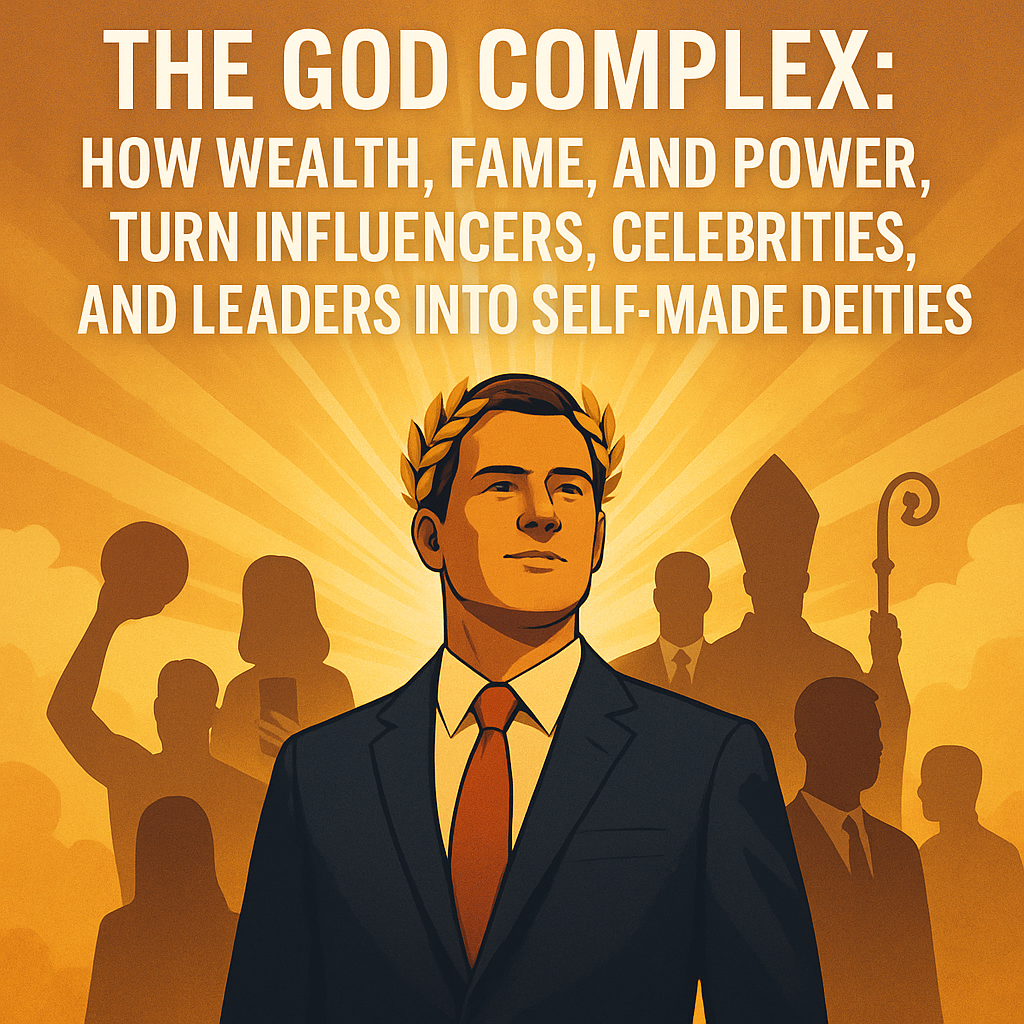The God Complex: How Wealth, Fame, and Power Turn Influencers, Celebrities, and Leaders Into Self-Made Deities
Wealth, fame, and influence can lead to a dangerous "god complex" among pro athletes, actors, politicians, religious leaders, influencers, and business moguls — and why society should be concerned.
Faheem Hassan
8/10/20252 min read


The God Complex: Why the Rich and Powerful Often See Themselves as Untouchable
Introduction: Power’s Psychological Trap
History shows that absolute power doesn’t just corrupt — it transforms. Many pro athletes, actors, politicians, religious leaders, influencers, and millionaire or billionaire business people fall into the psychological snare known as the god complex. This mindset convinces them that they’re infallible, above the rules, and entitled to control others’ lives. While not every wealthy or famous person succumbs to this mentality, the combination of status, influence, and adoration creates a breeding ground for narcissism.
What Is a God Complex?
A god complex is not a clinical diagnosis, but a descriptive term for an inflated sense of self-importance. People with it believe their opinions are always right, their actions are beyond reproach, and their vision should be unquestioned. This often leads to:
Dismissing criticism as ignorance or jealousy
Expecting special treatment in every aspect of life
Exploiting others without guilt
Believing rules don’t apply to them
Why the Rich and Powerful Are at Risk
1. Constant Praise and Public Adoration
Pro athletes, actors, and influencers often live in a feedback loop of applause, compliments, and fan devotion. This perpetual validation can erode humility and create an exaggerated sense of superiority.
2. Extreme Wealth and Control
Millionaire and billionaire business leaders command entire industries. When every decision you make alters the fate of thousands of employees — and no one dares to challenge you — it’s easy to believe you’re omnipotent.
3. Political and Religious Authority
Politicians and religious leaders are often surrounded by loyal followers who treat them as moral or intellectual authorities. Over time, this can morph into a belief that they’re chosen or divinely guided.
4. Insulated Social Circles
The rich and famous tend to live in exclusive environments, surrounded by “yes-men” who avoid conflict to protect their own careers. Without honest feedback, self-awareness fades.
Warning Signs of a God Complex in the Elite
Disregard for Laws or Ethics: Believing wealth or influence grants immunity from consequences.
Excessive Risk-Taking: Assuming they can’t fail, even in reckless ventures.
Manipulative Behavior: Using power to control narratives, silence dissent, or destroy critics.
Public Statements of Superiority: Declaring themselves smarter, more capable, or more deserving than others.
The Consequences for Society
When the rich and powerful develop a god complex, the fallout can be severe:
Corruption in Politics that undermines democracy.
Abuse of Power in Business that exploits workers and consumers.
Cult-like Influence in religious or social movements that manipulates followers.
Moral Decay in Entertainment as public figures normalize unethical behavior.
Breaking the Cycle
Accountability is the antidote. Transparency in politics, corporate regulation, media scrutiny, and public education can limit the influence of those who think they’re untouchable. Fans and followers also play a role — blind devotion enables destructive egos to grow unchecked.
The god complex is more than arrogance; it’s a societal danger. Pro athletes, actors, politicians, religious leaders, influencers, and wealthy businesspeople hold incredible power over culture and policy. When that power fuels delusions of divinity, the consequences reach far beyond personal downfall — they threaten the integrity of the systems we all depend on.
